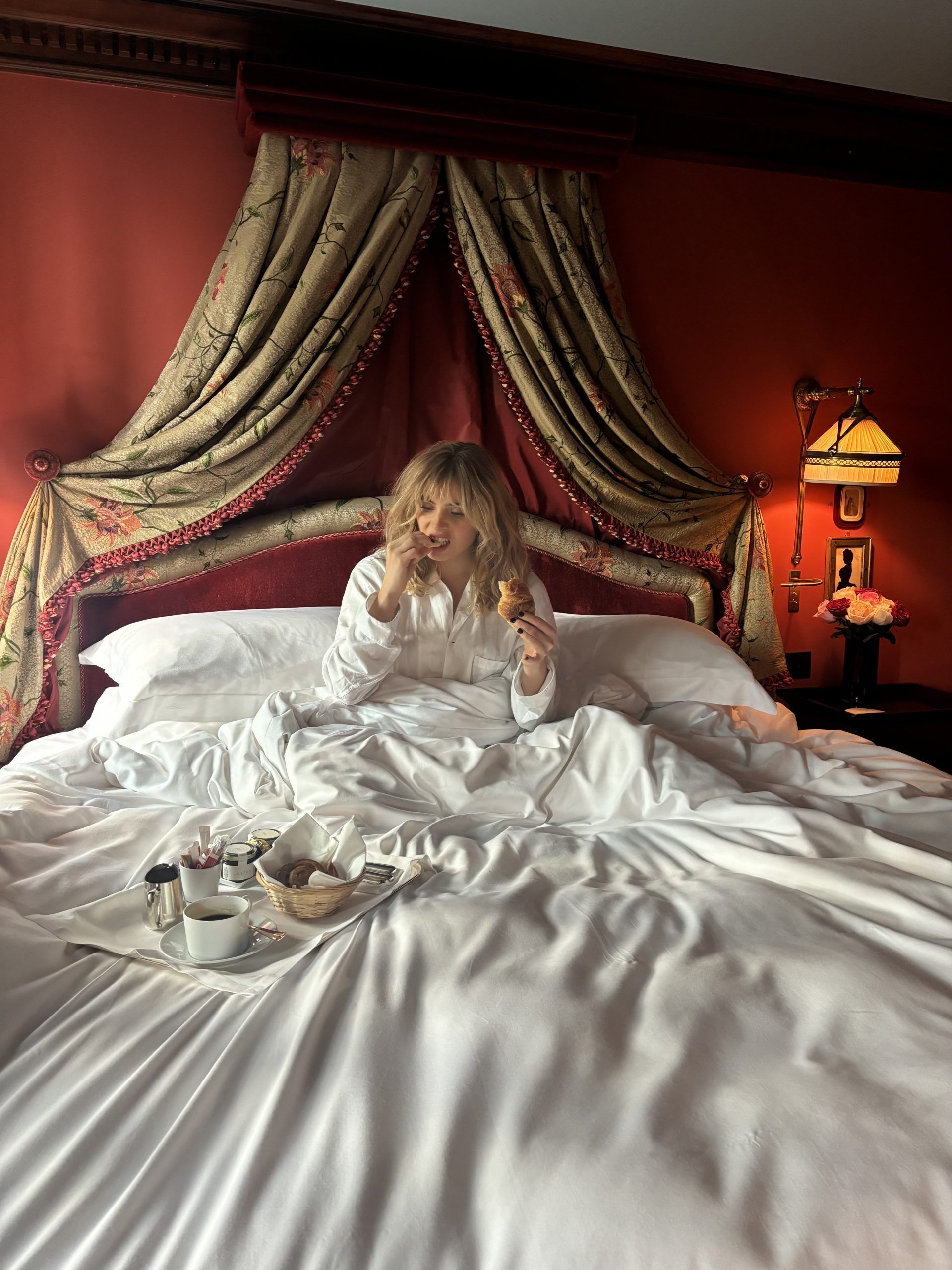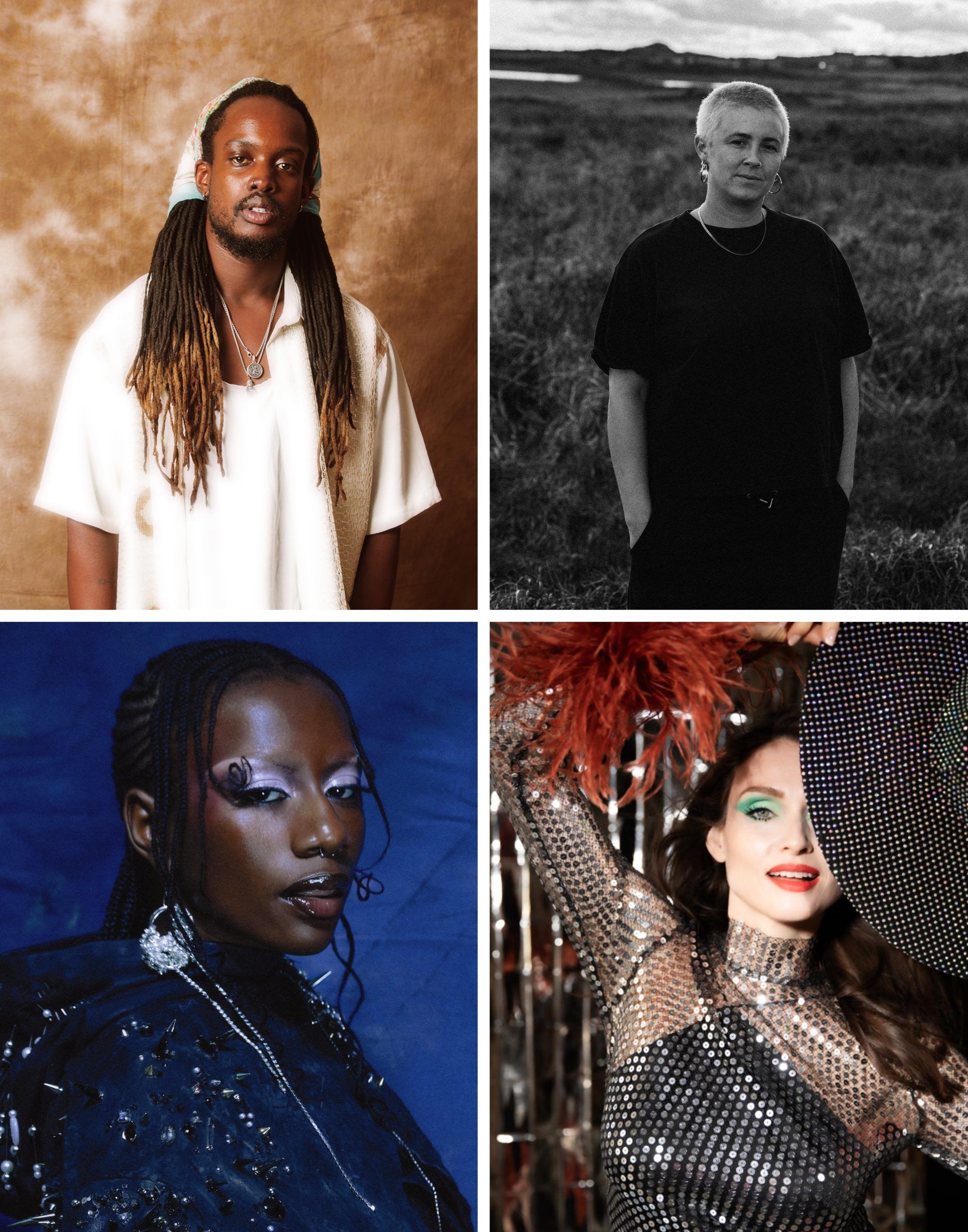Music legend John Oates still possesses the same burning passion for his craft 58 years on.
Starting guitar and singing from the tender age of five years old, John grew up with a love of folk, blues, and soul. By 1966, the American songwriter, who was a wide-eyed teenager at the time, recorded his debut single, “I Need Your Love” with a group called The Masters for Crimson Records. From that point onwards, Oates relentlessly followed his passion with different projects before meeting fellow Temple University student, Daryl Hall.
Many people will recognise Oates as the co-founder of one of the biggest pop-rock duos of all time, Hall & Oates. Few bands have stood the test of time and have had such longevity as John and collaborator, Daryl Hall. From the 1970s onwards, their music has greatly impacted the musical lexicon of today. In the 1980s, hits like “You Make My Dreams (Come True)”, “Maneater” and “Out of Touch” skyrocketed the pair to even dizzier heights of acclaim. Over the years, they recorded 21 albums, sold over 80 million units, had 20 top 40 hits and toured the world. Hall & Oates’ legacy is so significant that the pair made it into the Rock and Roll Hall of Fame, and have won countless awards.
Their legendary status was further cemented after participating in the 1985 “We Are The World” charity single, alongside the biggest names in the music industry. The recording session included the likes of Michael Jackson, Tina Turner, Stevie Wonder, and Diana Ross, to name only a few. Undoubtedly, John is extremely grateful for the whirlwind career of Hall & Oates. But his versatility extends far beyond the duo. As an accomplished solo artist, producer, philanthropist, and author, John uses his platform for social good. Oates has helped raise millions for the not-for-profit Feeding America through his virtual online concert series Oates Song Fest 7908, and championed causes like Movember.
Since his solo career took off in 1999 and after a move to Nashville in the early 2000s, he’s released seven stellar albums. His latest record, Reunion, is arguably his most sonically cohesive record to date, and a clear milestone when compared to his previous six solo LPs. The album is full of lush acoustic production, and gorgeous, unwavering vocals. The record is influenced by many folk artists who were around before the birth of rock & roll in the 1950s such as Mississippi John Hurt, and Doc Watson. Thematically, Reunion is a record that tells a tale of love, loss, and personal rediscovery.
Despite his monumental achievements, Oates, now in his 70s, remains humble and dedicated to pushing his creative boundaries and always striving for more. That same creative spark he started with is still truly well ablaze, and his latest LP proves it.
1883 Magazine’s Cameron Poole sits down with John Oates via Zoom to discuss his latest solo record Reunion, the longevity of Hall & Oates, being part of the iconic 1985 “We Are The World” charity single and more.
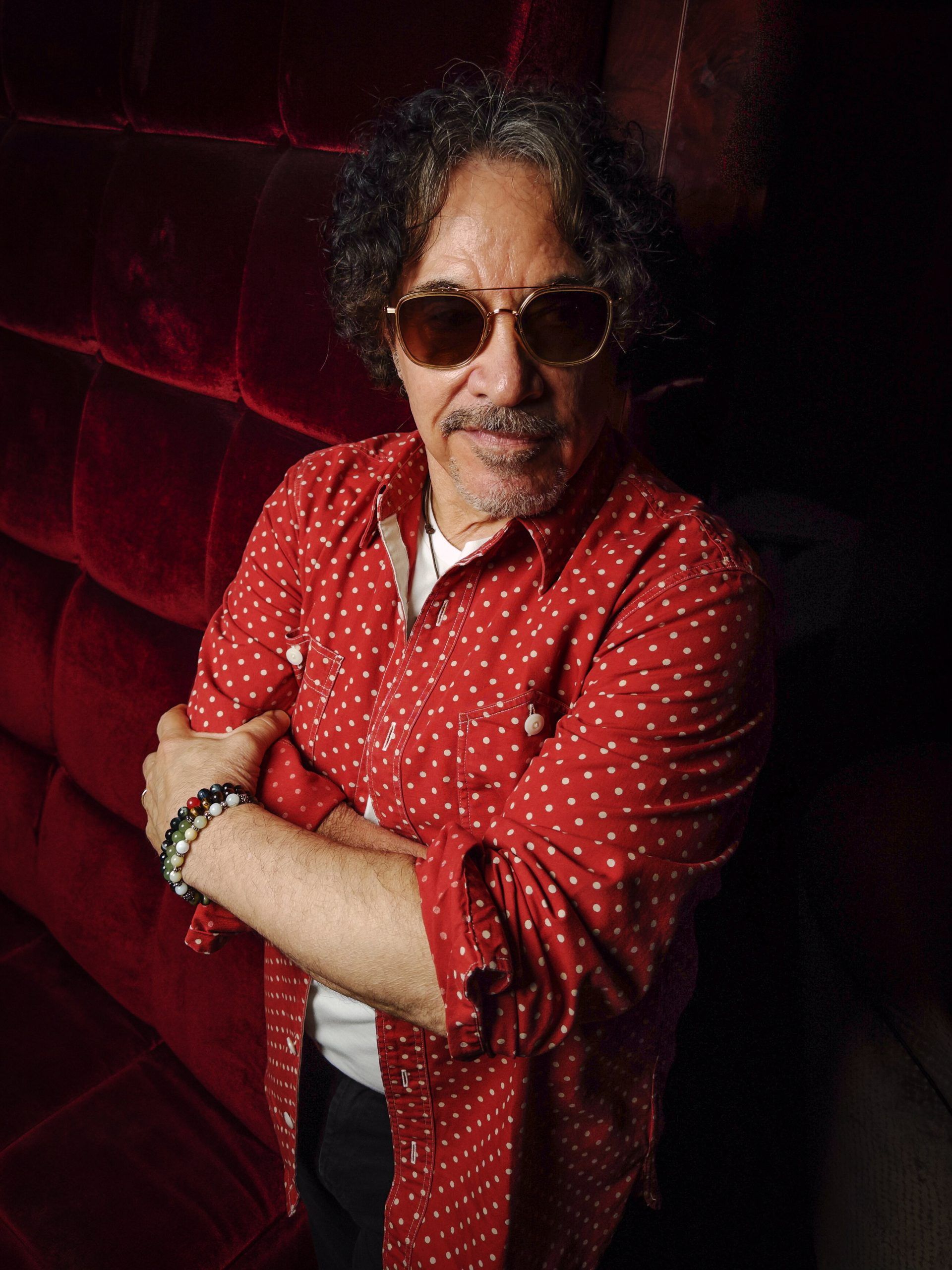
Photography Will Byington
Hi John, thanks for speaking with 1883 Magazine. Congratulations on recently dropping your new record, Reunion. I believe this record is sonically influenced by the folk and soul artists that were championed on record labels like Chess Records, Sun Records, Stax, and more. You yourself grew up in the 60s in such a musically rich era.
With the influence you’re right, but I think you’re not accurate when you say Sun, and Chess records, they’re more of the early rock labels. The stuff that I was referring to, especially on this album really dates back further than that to the folk influences, the stuff that was done on one of the early folk labels like Okeh Records out of Mississippi and things like that with Mississippi John Hurt and then Vanguard, those type of things.
When I was a kid in the early ‘60s, the folk revival had hit America in the college campuses. A lot of these roots, original performers, were being rediscovered and brought up to the northern cities and that’s where I got to hear a lot of this stuff. But at the same time, you are correct in that simultaneously, there was such great soul music being made in the early 60s from places like Stax, Volt in Memphis and Chicago, Motown and all that stuff. So it was kind of a multiple influence, but this album leans more toward the acoustic-folk side.
Good to know, I apologise for that error there!
No, no, there’s nothing to apologise for. It’s just a matter of how people hear things and perceive them.
How instrumental was your move to Nashville in the early 2000s when redefining your musical identity and figuring out how you wanted to launch your solo career?
Well, you know, I was kind of a folk, blues acoustic-oriented, guitarist, songwriter and singer prior to meeting Daryl Hall. When he and I got together we kind of pulled our individual influences and became something completely original. But that early musical DNA that made me who I am never really left me. It was the move to Nashville as you suggested, what it did was I became involved with the Americana Music Association in this community of musicians who had a lot of those same early influences that I did. So it kind of brought me back to that and I had a realisation that I needed to define myself as an individual.
I needed to find out who I could be as an individual. When 50 years of your life is wrapped up in a in a collaboration and a partnership, all of a sudden, it’s kind of a big change to say, ‘well, let me get back to who I am’. Nashville is directly responsible for that, the players that I met the, the attitude of the city, just everything gave me kind of a musical community to get to be part of and to reinvent myself from.
All bands and musical projects have different dynamics and structured roles. Transitioning from collaborative projects to something solely driven by your artistic vision, what have you learned about yourself as a songwriter?
Well, I think what I learned is that I’m a really good collaborator [laughs]. So even though I’m doing my individual projects, I’ve been collaborating with different people. So if you look at the credits on the Reunion album, you’ll see that a lot of the songs are collaborations. I really liked the dynamic of working with other people, seeing what they bring to the table, working off their energy and kind of crafting their musical sensibility to something that I’m doing. I think it’s really exciting. I think sometimes that one plus one, sometimes equals more than two, three, four, five or six. So really not much has changed, it’s just that I’ve been able to be more pure and focused on the type of music I want to make.
I’m so glad you could tick off playing the Royal Albert Hall, it’s such a special venue.
Oh, I turned left at Hyde Park and then I found it I’m just kidding, [laughs], bad joke right? Sorry, I couldn’t help myself.
No, it was good.
It happened by accident and I can tell you the story behind it. I was supposed to do a European tour. We had set up a European tour and unfortunately a very sad situation. The promoter who really was behind it and who was kind of my champion. Unfortunately, he passed away suddenly in a very sad way. The whole tour got cancelled, but I had already planned to support Richard Marx just because I knew I was coming to Europe, so it would be fun. So now I was kind of committed to doing this one off show and I had no tour to back it up.
But nevertheless, I made it and I still enjoyed it. It was an amazing experience. The Richard Marx folks were fantastic to work with. They were great. I played it with a percussionist from London, Oli Savill, who’s fantastic. He and I just went out there in a very simple way, acoustic guitar and percussion. We played some songs and it’s a beautiful place to play, one of the great, legendary venues and I’ve been able to tick it off my list. I hope I can do a proper show of my own there.
You’re a car connoisseur, if you could only own one, what would you pick and why?
Oh well, I own the car, if there was only one car, I actually own it. It’s a 1960 Porsche 356 Cabriolet that was reimagined by a friend of mine named Rod Emory from California. It’s a car that was completely rebuilt and customised to my specificity. So it’s a bespoke car, you can have a bespoke wardrobe of clothes, a custom guitar or whatever. This is a custom car that was built to my spec, so that’s the one.
We need to acknowledge you’re one-half of the biggest pop-rock duos of all time, now you can look back on that chapter of your career, how does it make you feel knowing that your music has stood the test of time and influenced so many bands? Not all musical acts have longevity.
I have a tremendous respect for the work that Daryl Hall and I did together. It’s as you say, it’s a rare opportunity to have that kind of impact across generations.I will say that I’m very aware and very appreciative of the fact that the success that I’ve had with Daryl Hall has enabled me to do whatever I want, which is the ultimate goal of a creative person to have artistic freedom. So really I’m proud of it.
I knew that music was going to last forever, which is really an incredible thing to acknowledge and I’m glad for it, but at the same time, I don’t like staying in the same place. So it’s time for me to move on and in this sort of a final…. to be honest with you, I look at this as the final creative chapter of my life, I want to make the most of it while I still have a mental ability to create and play.
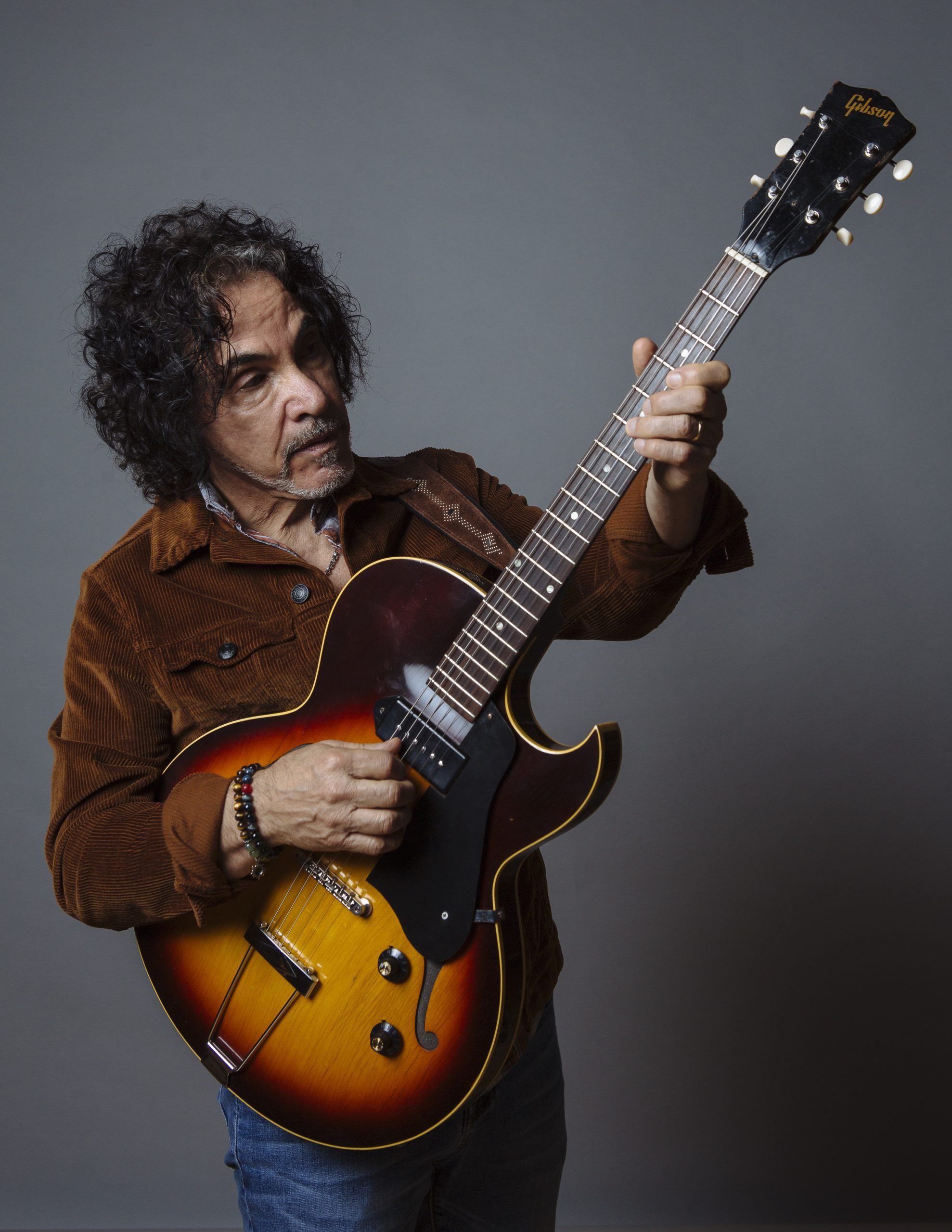
I completely understand and as an artist, you’re always going to be looking forward to the next creative project, With Reunion what are you most proud about this body of work?
I’ve made I think seven albums, including the live solo albums already, I’ve been doing it for 20 years, but I think this album is focused. It’s the most coherent, I think the songs are real. They seem to work together really unique way. They’re very interesting, It’s a very mature album, It’s not about you know, getting up off your feet to boogie. It’s really about listening. It’s about mature subjects, that’s who I am. I mean I’m in my seventies and the music on this album are the type of things that I think about.
I have to ask, how much of a fever dream was recording the charity single “We Are The World” in 1985 and what was going through your mind when you stepped in that room?
I think I have a better perspective now looking back on it. I don’t think a moment like that could ever happen again. I think it was a very unique moment in time. It was right after The American Music Awards. You have to remember in those days, there were only two major award shows not like today where there seems to be an award show every week. There were only the Grammys and the American Music Awards in the US anyway. So getting all those artists to come over was an amazing thing to do. They were all there, everyone who was anyone in pop music.
I recall standing right of James Ingram and right adjacent to Ray Charles two of my heroes and I was thinking to ‘myself, wow, what an incredible moment to be in this place at this time’. I had the foresight and I had the awareness to go around and get people to sign the sheet music that was given to me. So I have a copy of that in my safe, believe it or not, with every signature of every person in that room which is very rare. Probably, unless I’m wrong, I’m the only person that has that, it’s unique.
Looking back I’m really glad that I was part of it and it was a historic moment in pop music.
Whether it’s supporting Feeding America, Movember, or helping guide new emerging songwriters at Play It Back Songs sessions, It’s really lovely to see someone using their platform for good. Why has it been so important for you to be involved in projects like these?
What the success has given to me, I don’t take it lightly and I don’t take it for granted. I think it’s important when you when have a certain amount of success and when you have a certain career, I think sharing that is a great part of the natural progression of maturity. I feel that that I have to give back with all the blessings and all the things that I’ve had come my way that I worked hard for. But nevertheless, it’s just part of growing.
If you don’t do that, then you’re stagnant and I don’t want to be stagnant.
Definitely – I’m curious given you’ve met everyone, do you think people should meet their heroes? I’m aware you met one of yours, Doc Watson, and you met him, and on another occasion got to play with him in the basement of the Main Point Coffee House in Pennsylvania.
[laughs] Well, you’ve done your research, which I appreciate. Listen, one thing I will say, a lot of people say they’ve met their heroes and we’re disappointed. I’ve met a number of my heroes and I’ve never been disappointed. I’ve always found that the most successful people are usually the nicest. Not always, but it’s sometimes.
I have to say it, I think “Out of Touch” from Big Bam Boom is one of my favourite songs of all time, I know playing the hits can be tiresome and you now focus on your solo material but are there any H&O songs you still feel fondly about?
Yeah, there’s a few, in fact, Out Of Touch is one of them, I play that sometimes in my acoustic show. Of course, it’s a reimagined version on an acoustic guitar. Which you know, the production on that [song] was heavily influenced by the technology of the time, the early days of the digital recording instruments that were being developed in the mid 80s. So you can’t replicate that with an acoustic guitar, but nevertheless, a good song can be played regardless.
There’s some songs I play, She’s Gone, which is a song that I think was the real catalyst for the whole Hall & Oates career. Without that song, who knows what would have happened to Daryl and I? So yeah, there’s some selected songs, but I’m so focused on my new music that I really don’t lean on those too much anymore.
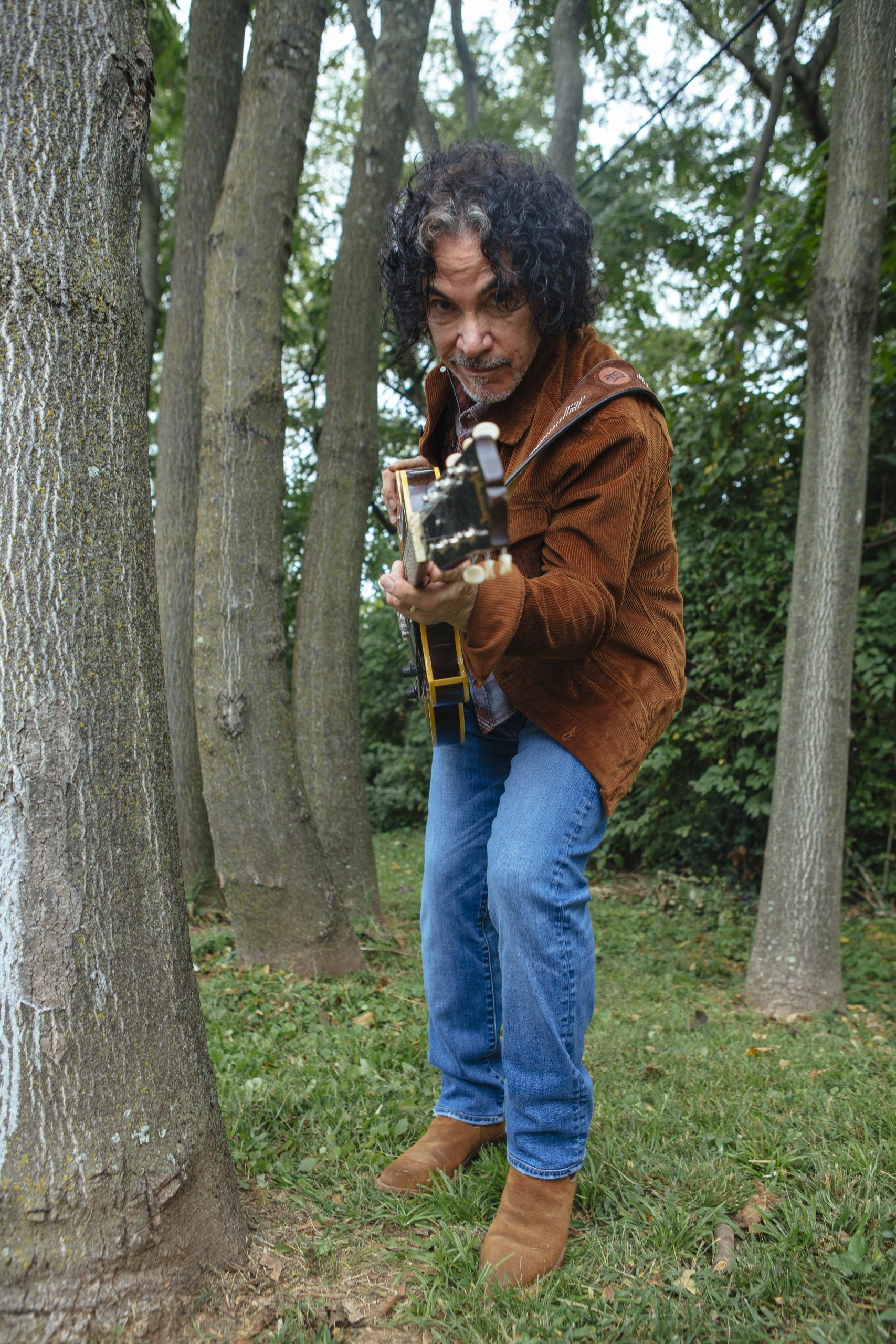
Rightly so! I’m aware you’ve got some upcoming American tour dates this year, given you’ve toured the world and been gigging for a while, how do you like to warm up for your shows these days? Any certain routines?
I’m touring with an acoustic quartet, which is fantastic. It’s a cello, a percussionist, a pedal steel guitar, and myself on acoustic guitar. So it’s very organic, authentic and real. There’s no amplifiers, there’s no samples, there’s no tracks being played. Everything is real and authentic, that’s what I’m trying to do. I do a show called an Evening of Songs and Stories. I tell a lot of stories about how songs written, backstories about various experiences I’ve had, and then I play songs that were important to me. I play a lot of songs in the show that were influential to me as a musician. I’ll play Doc Watson songs, I’ll play a song by Curtis Mayfield, I’ll play a song by Smokey Robinson, I’ll play a song by Mississippi John Hurt.
I kind of give people an overview of the music that made me basically. So I really don’t have to prepare before a show, I’ve been playing the songs for 60 years. So I don’t prepare that much. I like to keep the set loose and sometimes I’ll change songs in the middle of the show, that’s the beauty of doing it in this very acoustic way.
Finally, If “I Need Your Love” by The Masters acts as a snapshot of yourself at the very start of your career, (it’s a great song by the way), what does your new album Reunion say about yourself in 2024?
What it says about me is that I’ve really matured to the point where I have really found my true musical self, I’ve rediscovered it, and now I’m only starting again.
You’ve achieved so much in your career so far, and it’s great to hear you still have that burning passion for it all, that excitement.
I do, thank you.
I know you’ve done so many interviews, I just want to emphasise, that you spending this time with me now, It’s not lost on me and I do really appreciate it, John.
Well thank you, bud, I appreciate the interview. I always like to get a chance to let people who I truly am, that’s very important to me, and hopefully it comes through in the music and hopefully, interviews like this will help that along. So thanks.
Amazing, looking forward to the next time you’ve got some shows in the UK!
I’m actually working right now on doing some UK and European dates for the spring of 2025, so it’s in the works. Hopefully, we’ll make that happen.
John Oates’s new solo album Reunion is out now, purchase it by clicking here.
Follow John Oates by clicking here.
Interview Cameron Poole


